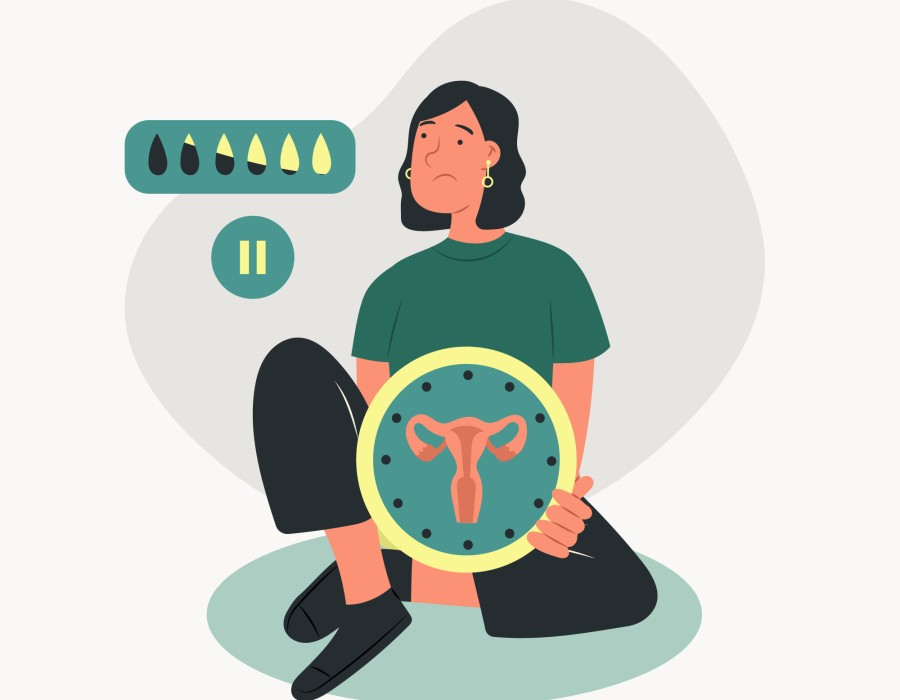What is PCOS and How Does It Affect the Skin?
PCOS, or Polycystic Ovary Syndrome, is a common hormonal issue that affects women during their reproductive years. One of the lesser-known but impactful symptoms of PCOS is the effect it has on the skin. Women with PCOS often experience acne, dark patches (known as acanthosis nigricans), and other skin issues due to the hormonal imbalances caused by the condition.
PCOS causes an overproduction of androgens (male hormones), which leads to excess oil production, clogged pores, and in turn, acne. In addition, insulin resistance, which is also associated with PCOS, can cause dark, velvety patches to form on the skin, particularly in areas like the neck, armpits, and groin.
How Does PCOS Lead to Skin Problems?
Understanding why PCOS causes these skin issues is crucial for effective treatment. Let’s take a closer look at how PCOS affects the skin:
1. Acne from PCOS
Acne is one of the most common skin problems caused by PCOS. Elevated androgen levels cause the sebaceous glands to produce more oil, leading to clogged pores and bacterial growth. This results in acne, which can be severe and persistent, particularly around the jawline and chin.
2. Dark Patches (Acanthosis Nigricans)
PCOS often leads to insulin resistance, which means the body doesn't use insulin effectively. High levels of insulin can stimulate the skin cells to grow faster, causing dark patches to form, particularly in areas like the neck, underarms, and groin. These patches may feel velvety and thick to the touch.
The Importance of Treating PCOS-Related Skin Problems
PCOS-related skin problems are not just cosmetic; they often indicate underlying health issues such as hormonal imbalance and insulin resistance. Treating these symptoms is important for improving both your appearance and overall health.
Why Should You Seek Treatment?
- Prevent Scarring: Acne caused by PCOS can leave long-term scars if not treated properly. Early intervention can help prevent permanent skin damage.
- Manage Insulin Resistance: Dark patches of skin indicate insulin resistance, which can lead to more serious health issues like type 2 diabetes if not addressed.
- Improve Self-Confidence: Skin issues can impact self-esteem and confidence. Addressing PCOS-related acne and dark patches can improve both physical and mental well-being.
How to Treat PCOS-Related Skin Problems
Effective management of PCOS-related skin problems requires a combination of lifestyle changes, medical treatments, and skincare routines. Here’s a step-by-step approach:
1. Consult a Specialist
The first step is to consult a specialist who understands the intricacies of PCOS and how it affects the skin. A gynecologist or dermatologist can help create a treatment plan tailored to your specific needs. Online consultations make it easy to get expert advice. Online obstetrics gynecologists consultations in India offer the convenience of discussing your symptoms and getting a diagnosis without leaving your home.
2. Medications
To treat acne caused by PCOS, doctors often prescribe medications that regulate hormone levels. For dark patches, topical treatments with ingredients like retinoids or salicylic acid may help reduce pigmentation.
3. Lifestyle Changes
Making lifestyle changes is essential to managing PCOS. These include:
- Dietary Changes: Eating a balanced diet low in sugar and refined carbs can improve insulin sensitivity and reduce acne flare-ups.
- Exercise: Regular physical activity helps balance hormones and manage weight, reducing insulin resistance.
- Skin Care Routine: Using non-comedogenic, oil-free products can help manage acne.
4. Full Body Checkups
Keeping track of your overall health with a top full body checkup in India is essential for monitoring PCOS symptoms. Regular checkups can help detect any changes in hormone levels or insulin resistance, allowing for early intervention.
FAQs About PCOS and Skin Problems
Q1: How do PCOS pimples look?
A: PCOS pimples are often large, inflamed, and cystic in nature. They typically appear deeper under the skin and can be painful. They may also take longer to heal compared to regular acne.
Q2: Where is PCOS acne located?
A: PCOS acne is usually found on the lower face, particularly along the jawline, chin, and neck. It can also appear on the chest and back.
Q3:What does a PCOS face look like?
A: A "PCOS face" may have features like acne, oily skin, and sometimes dark patches (acanthosis nigricans) around the neck or underarms. Some women may also experience excess facial hair growth (hirsutism).
Conclusion
Managing skin problems caused by PCOS requires a comprehensive approach. Start by consulting the best doctors for PCOS treatment in India to get expert advice on how to treat your skin issues effectively. With the right approach, you can manage both your PCOS and its effects on your skin, leading to better overall well-being.





Comments